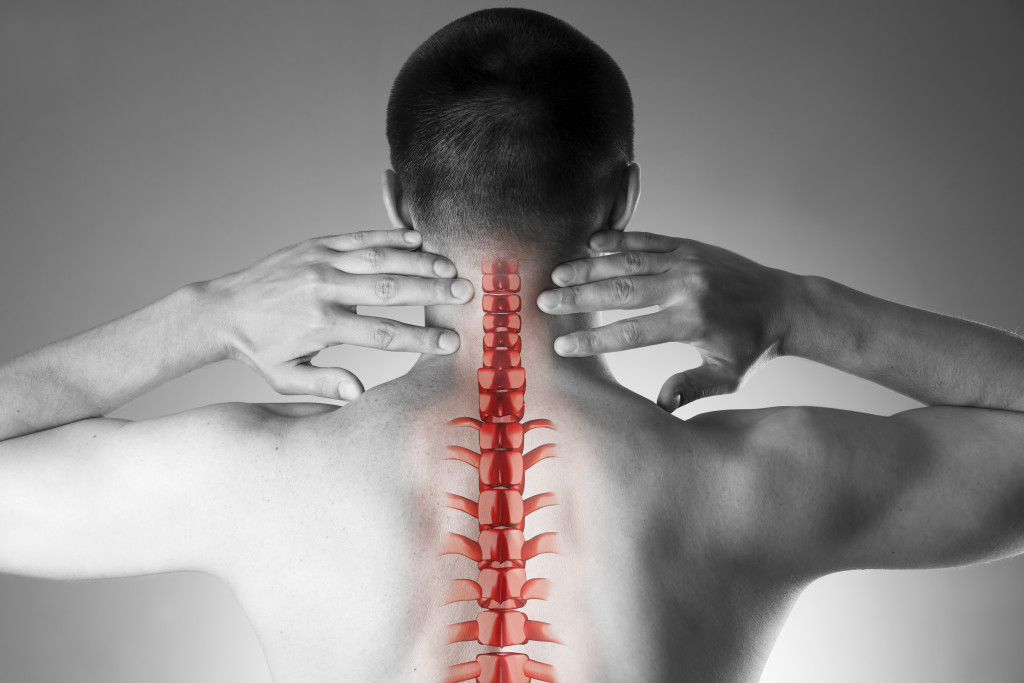Bone health is a health topic rarely discussed in your younger days. But as you get older, issues like osteoporosis and hip fractures will start to become a reality. Issues like low bone density and brittle bones could lead to pain, discomfort, and mobility problems that can significantly impact your quality of life.
If you want to stay healthy and strong for as long as you can, it’s important to take care of your bones, regardless of your age. Fortunately, there are simple things you can do to maintain bone health. And it’s easier than you think. Read on to find out how physical activity, diet, and other lifestyle changes can affect your bone mass.
Maintain a balanced diet
The most important factor that affects bone mass is your diet. Substantial evidence shows a balanced diet rich in calcium, protein, omega-3 fatty acids, vitamins D and K, zinc, and magnesium can help improve bone density. Milk and other dairy products are often touted as the best foods for bone strength, but there are other natural sources of calcium, as well, including:
- Dark green leafy vegetables
- Seeds and nuts
- Sardines and salmon
- Almonds
- Beans and lentils
- Rhubarb
- Edamame and tofu
- Figs
Fortified foods like juices, soy milk, cereals, and brands may also be good sources of calcium. Don’t forget your protein, as well. The best sources of protein other than lean meats are:
- Fish and seafood
- Eggs and dairy products
- Soy products
- Quinoa and amaranth
- Beans, lentils, nuts, and whole grains
In addition to protein and calcium-rich foods, you should also load up on foods high in omega-3 fatty acids, as well as vitamins D and K.
Maintain a healthy weight
Maintaining a stable, appropriate weight is another great way to keep your bones strong and healthy. Several studies have shown that people who are overweight or obese have reduced bone density relative to their weight, which increases their risk of fractures and other bone issues. Obesity also puts you at higher risk for type 2 diabetes and insulin resistance, further increasing your risk of fractures and bone loss.

Perform weight-bearing exercises
Regular exercise alone can help protect your bones, but if you’re looking to strengthen them, you can try doing weight-bearing exercises. Strength training, also called resistance training or weight lifting, not only builds muscle endurance but also keeps the bones healthy. Older adults in assisted living homes can also do exercises like taking the stairs and other resistance exercises to keep hip or knee injuries at bay.
Perform flexibility workouts
Deep stretching or other flexibility exercises is also an effective way to keep bone loss and other bone-thinning problems at bay. They also keep the joints healthy, helping you prevent injury. The best stretching exercises include:
- Yoga
- Tai chi
- Lunges and squats
- Dynamic stretching
- Using stretch bands
- Pilates
- Walking up a hill or the stairs
You can try other exercises to achieve a full-body stretch. Doing so can ensure your flexibility is maximized for your health.
Quit smoking
Studies have shown that tobacco use can lead to weak and brittle bones. Women who smoke are at an increased risk for osteoporosis. Additionally, this habit can also increase your risk of having fractures and joint problems. If you want to enjoy the freedom of movement and range of motion as you get older, do your best to quit smoking as early as possible.
Research suggests that using tobacco adds to the weakening of bones. Likewise, regularly having more than one alcoholic beverage daily for women or two for men may increase the possibility of acquiring osteoporosis.
Consume alcohol moderately
Like tobacco use, alcohol consumption can also make you more prone to bone issues and fractures. This is especially true for women nearing menopause. Research suggests that having one alcoholic drink regularly can increase the risk of osteoporosis for women. That said, if you want to have strong and healthy bones when you get older, try to limit your alcohol intake to a glass of wine a day, if at all.
Pay attention to hormone changes
Hormonal changes play an important role in bone health. A Mayo Clinic article revealed that too much thyroid hormone can lead to bone loss. Additionally, bone loss accelerates dramatically in menopausal women due to the sudden drop of estrogen. Likewise, dropping testosterone levels in men can also cause bone loss.
During this stage in your life, it’s important to consult with an age management specialist for tips on how to protect your bones. Your doctor can recommend hormone replacement therapy and nutrition recommendations that include hormone-regulating foods. Regular exercises can also help you reduce symptoms of menopause.
Live your best life regardless of your age by keeping your bones strong and healthy.






